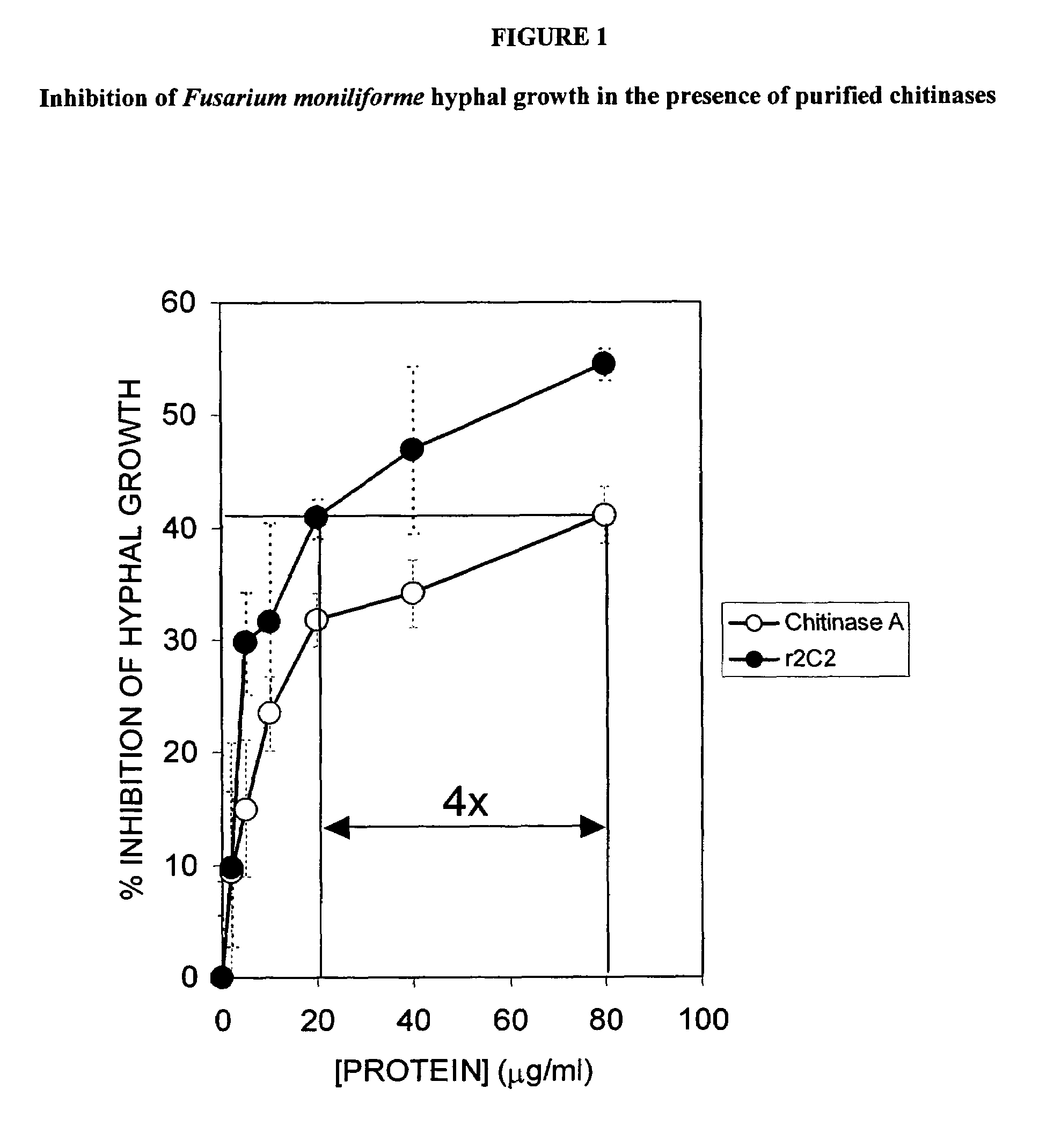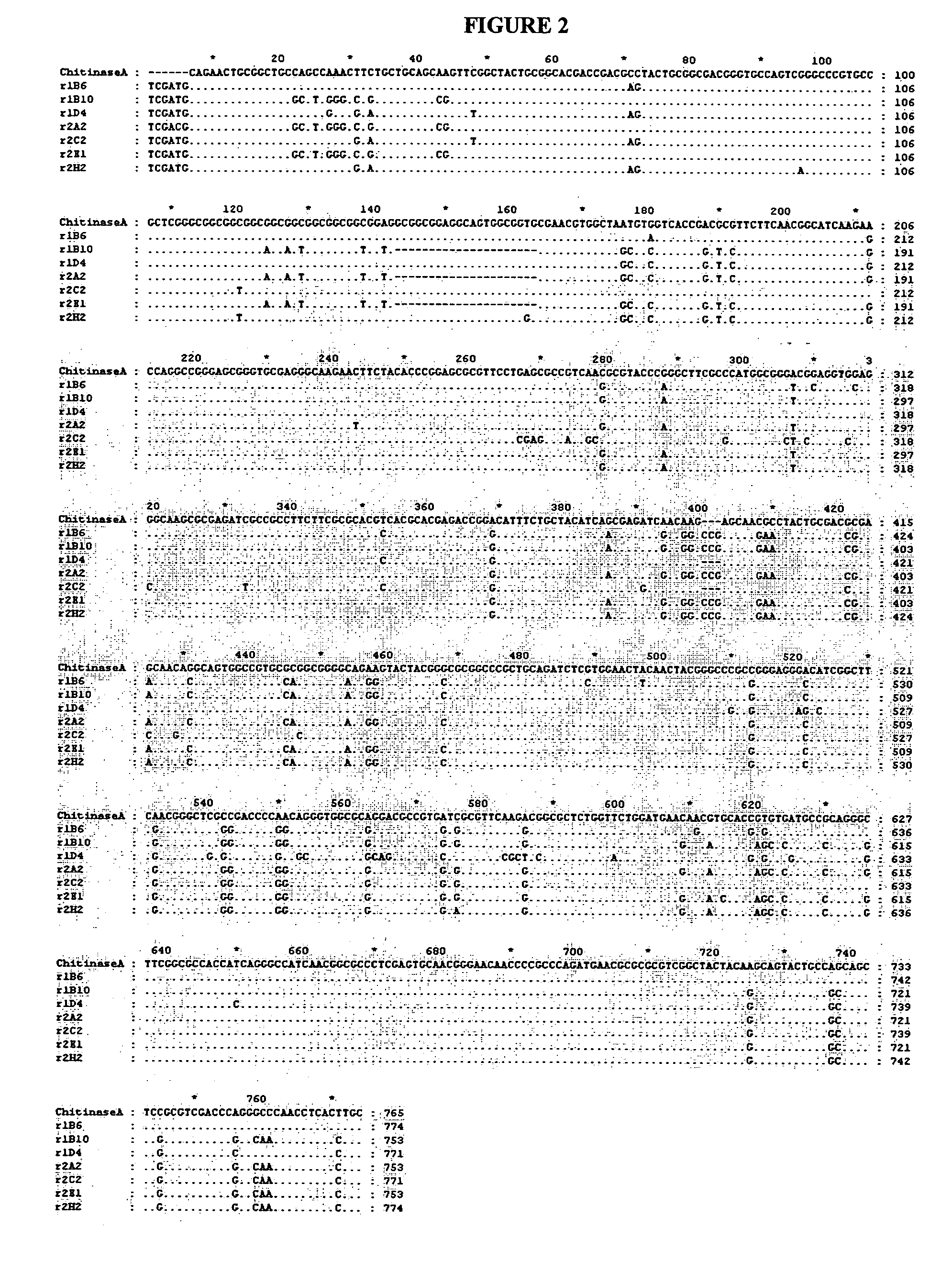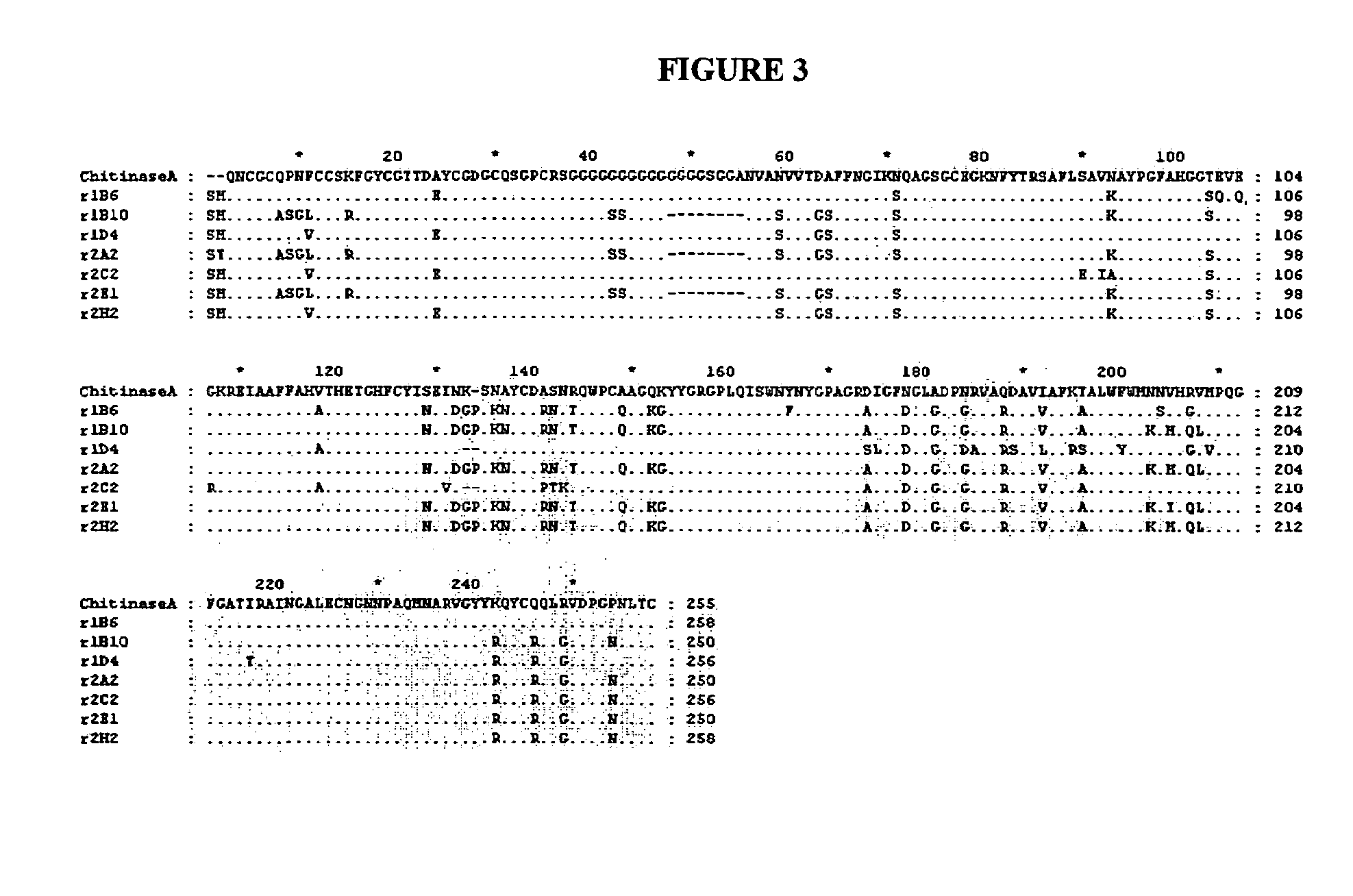Isolated nucleic acids encoding proteins with chitinase activity and uses thereof
a technology of chitinase activity and nucleic acids, which is applied in the field of isolating nucleic acids encoding proteins with chitinase activity, can solve the problems of small root system, significant loss in crop quality and yield, and nematode infection
- Summary
- Abstract
- Description
- Claims
- Application Information
AI Technical Summary
Benefits of technology
Problems solved by technology
Method used
Image
Examples
example 1
Cloning and Protein Expression of the Polynucleotides of the Invention
[0222]Genes, referred to as parent genes, were amplified by PCR, with flanking regions containing restriction sites Cla I at the 5′-end and Xba I followed by a stop site at the 3′-end. The amplified sequences were ligated, in frame with the α-factor signal sequence, to the E. coli-Pichia pastoris shuttle vector pPICZα-C (Invitrogen) in which the DNA fragment comprised between Cla I and Xba I had been deleted. Cloning of the constructed plasmid in the E. coli strain Top 10 F′ (Invitrogen) was performed according to the manufacturer's instructions.
[0223]A library of nucleic acids (in some cases comprising a polynucleotide encoding a histidine tag) related to the parent gene sequences was obtained. The polynucleotides of the library were then ligated into pPICZα-C, transformed into E. coli and the library was then amplified on LSLB agar plates supplemented with 25 μM Zeocin.
example 2
Identification of Chitinase Clones with Improved Chitinase Activity
[0225]In general, the chitinases with improved activity were identified as follows. Proteins secreted to the culture medium were assayed for their ability to hydrolyze chitin. The clones with the best hydrolytic activity against carboxymethyl-chitin-remazol brilliant violet (CM-chitin-RBV) were selected. DNA from the most active clones was isolated. Selected chitinase clones were sequenced by using PCR primers specific to regions flanking the genes.
[0226]Two calorimetric methods were used to determine the chitinolytic activity of the clones: one based on the hydrolysis of the soluble, dye-labelled substrate carboxymethyl-chitin-remazol brilliant violet (CM-chitin-RBV) (Wirth and Wolf J. Microbiol. Methods 12:197–205 (1990)), and the second by measuring the endochitinase activity of the enzymes on colloidal chitin (Reissig, et al. J. Biol. Chem. 217:959–966 (1955); Legrand, et al. Proc. Natl. Acad. Sci USA 84:6750–675...
example 3
Improved Antifungal Activity of a Chitinase Clone with Enhanced Chitinolytic Activity
[0234]Clones with enhanced chitinase activity were tested for their ability to prevent hyphal growth of the pathogenic fungus Fusarium moniliforme. For preliminary screens, secreted protein was concentrated and buffer-exchanged before being used in antifungal assays. The secreted gene product was typically 90–95% pure, according to Coomassie-stained SDS-PAGE. For more precise characterization, protein secreted into the Pichia pastoris culture medium was concentrated and purified before being used in the antifungal assays.
[0235]Spores of Fusarium moniliforme were pre-germinated in clear 96-well microtiter plates in Vogel's Minimal Medium (VMM) (Vogel, Microb. Genet. Bull. 13:42–43 (1956); Vogel, Am. Nature 98:435–446 (1964)). Chitinases expressed with a histidine tag at their C-terminus were purified over nickel-nitrilotriacetic acid-charged agarose beads (Ni-NTA Superflow, Qiagen) according to the m...
PUM
| Property | Measurement | Unit |
|---|---|---|
| Tm | aaaaa | aaaaa |
| temperature | aaaaa | aaaaa |
| temperature | aaaaa | aaaaa |
Abstract
Description
Claims
Application Information
 Login to View More
Login to View More - R&D
- Intellectual Property
- Life Sciences
- Materials
- Tech Scout
- Unparalleled Data Quality
- Higher Quality Content
- 60% Fewer Hallucinations
Browse by: Latest US Patents, China's latest patents, Technical Efficacy Thesaurus, Application Domain, Technology Topic, Popular Technical Reports.
© 2025 PatSnap. All rights reserved.Legal|Privacy policy|Modern Slavery Act Transparency Statement|Sitemap|About US| Contact US: help@patsnap.com



